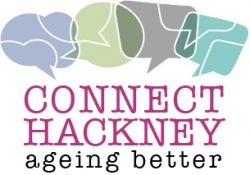Unfortunately we hear regular reports that some people are using this Coronavirus crisis as an opportunity to scam people in our communities.
Below are some of the scams we know about and how we can protect ourselves and those around us from becoming a victim of scams along with contact details for organisations providing help and advice.
There are also details of how help can be requested by those who may need it during this difficult time, such as collecting medication.
Citizens Advice
Citizens Advice Hackney have stopped giving face to face advice.
You can get advice by phone 020 3855 4472, Monday to Friday 10am to 12 noon and 2pm to 4pm or email to advice@eastendcab.org.uk
National Citizens Advice: www.citizensadvice.org.uk
Citizens Advice Scams Action Line (online scams): 0808 250 5050
https://www.citizensadvice.org.uk/consumer/scams/get-help-with-online-scams/
Latest info on scams
Take Five: www.takefive-stopfraud.org.uk
Action Fraud www.actionfraud.police.uk
Friends Against Scams: www.friendsagainstscams.org.uk
Get Safe Online: www.getsafeonline.org
Coronavirus scams
It’s worth taking time to make sure you and your community are protecting yourself
Scams to look out for:
- official looking emails that imitate organisations like Ofcom or HMRC, which ask you to click on a link with the aim of uploading malicious malware onto your computer
- official looking emails offering tax relief that send you to fake websites
- phone calls where scammers pretend to be from organisations offering assistance and asking for your bank details
- criminals knocking on doors offering to go shopping for people who are self-isolating at home
- online shopping scams involving sought-after items like face masks and hand sanitizer
- How to protect yourself and your community
If something doesn’t feel right then it probably isn’t.
Unexpected visitors to homes
If someone claiming to be from an organisation knocks on your door unexpectedly, don’t let them in. Current advice is to stay at least two metres away from people who don’t live in your house.
Be cautious of unsolicited calls and texts
Be wary of anything you weren’t expecting that claims to be from an organisation such as a bank, HMRC, Ofcom, BT, PayPal, Microsoft and other large, trusted organisations or the NHS.
Don’t be pressured into acting quickly
Automated scam phone calls and emails are often designed by criminals to scare you into acting quickly and parting with cash and banking information. If you feel pressured into doing something quickly, don’t do it.
Look out for poor grammar and spelling
Scam emails, texts and letters are often badly written with spelling mistakes.
Check the email address
Spam emails are often sent from email addresses that include additional unnecessary letters and numbers, so check the email address as well as the text in the email.
Does the correspondence address you personally
Legitimate emails from services you have accounts with will always address you by your name. Scam emails and texts usually start with ‘Dear Customer’.
Phone calls
There are some occasions when our staff phone you to discuss payment. If it is a genuine call they will have all your information to hand and will not require confirmation of details or ask you for any other personal information.
Signs to look out for
if you are being asked for money and put under pressure to act immediately, such as asking for
- your bank details
- you to make a purchase to win a prize
- you to phone a premium rate number

